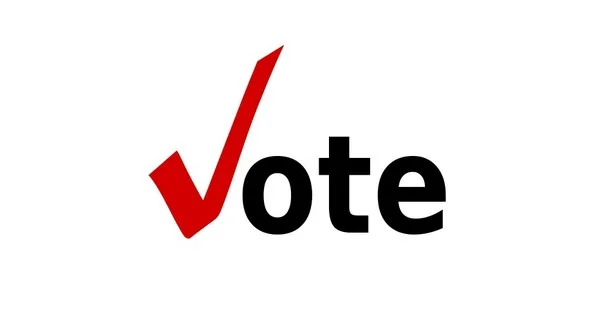
Three statewide ballot initiatives will appear before Arkanans this November, two that residents proposed about medical marijuana access and casino licenses and one that legislators referred to voters: Issue No. 1.
Issue 1 is a proposed constitutional amendment that would allow state lottery proceeds to fund scholarships and grants to students in vocational-technical schools and institutions. The funds are currently limited to students who attend two- and four-year colleges and universities through the Arkansas Scholarship Lottery’s four existing programs.
The joint resolution that established the proposed constitutional amendment in 2023 passed through the Senate with 30 votes in favor, three members voting present and two who excused themselves. It passed through the House of Representatives with 97 votes in favor, two non voting members and one present vote.
“I’m just passionate about people having opportunities,” said Rep. Robin Lundstrum, R-Elm Springs, who sponsored the bill. “I have three degrees… but not everybody needs to go to college, not everybody wants to go to college. Yet, we’re turning a blind eye to a whole segment of our population.”
Vocational-technical schools are also commonly referred to as trade schools and offer students training in specific careers such as culinary arts, real estate, nursing, welding or mechanical engineering.
“There are so many blue collar jobs that we’re losing,” Lundstrum said about not providing scholarship opportunities to vo-tech students.
The bill and the proposed amendment do not define vocational-technical schools and technical institutes, which means state lawmakers would have the authority under the amendment to determine who is eligible to receive funding.
In 2018, the Arkansas Department of Human Services compiled a list of vocational schools, colleges and universities in the state. It included 104 schools and 94 colleges and universities. A department spokesperson said the agency is not currently updating that list.
Funding source
The Arkansas Scholarship Lottery was established in 2009 and has since provided the funds for more than 770,000 college scholarships, according to its website. Of the $7.5 billion in lottery tickets sold over the last 14 years, more than $1.4 billion has returned to Arkansas students.
The Division of Higher Education within the Arkansas Department of Education handles revenue usage from the lottery. The Department of Finance and Administration publishes regular sales reports that include figures from ticket sales.
The Department of Education did not provide a statement about the importance of the proposed measure for students if it were to pass. The Arkansas LEARNS Act, a sweeping overhaul of the state’s education system, implemented policies that are supportive of technical education.
DFA spokesperson Scott Hardin said the staff who manage the lottery scholarships “wouldn’t have any insight into what Issue 1 could mean for the state.” Hardin said the measure would not affect the lottery’s operations, just the use of revenue.
Since 2009, an average of 30,000 students each year has received funds from the Arkansas Academic Challenge scholarship, according to data from the Division of Higher Education. Recipients peaked in 2013-2014 with more than 35,000, and the number has generally been decreasing since.
During a September legislative meeting with lawmakers who oversee the lottery program, Deputy Director Nick Fuller said the COVID-19 pandemic caused a dip in scholarship applicants among traditional college students.
Fuller said the lottery works with a nearly $300,000 annual budget for advertising, which primarily includes marketing on social media.
Sen. Linda Chesterfield, D-Little Rock, referred to the available scholarship funds as “one of the best kept secrets” in Arkansas.
In addition to the lottery proceeds, the Legislature also allocates $20 million in state revenue funds for the Arkansas Academic Challenge Scholarship each fiscal year. The proposed amendment would earmark $2 million of those funds to be held for students attending trade schools.
Established in Act 1105 of 2015, the funding for students who receive the Arkansas Academic Challenge Scholarship increases based on the recipients class and type of school they attend. Funding starts at $1,000 for freshmen at two- and four-year colleges. Sophomores at a two-year college receive $3,000 while sophomores and juniors at four-year colleges receive $4,000. Seniors who attend a four-year institution receive $5,000.
Issue 1 does not outline the funding amounts for a scholarship recipient to a trade school if the proposed amendment is approved. Lundstrum said rules about scholarship funds for vo-tech students would come forward in the 2025 legislative session, if the measure is approved in November.
Lundstrum said she hasn’t met anyone, Republican or Democrat, who has opposed the proposed measure.
“What’s exciting about this is the Arkansas Lottery Scholarship has the money, and we can actually help people that don’t want to go all the way through a two-year degree or a four-year degree,” she said. “The return on investment for six months gets them started on a lifetime of good-paying jobs that we need.”
A vote for Issue 1 indicates that a voter supports lottery funds for vocational schools. A vote against the proposed constitutional amendment indicates a voter wants to continue with the status quo of funds supplying students at private and public colleges and universities only.
If approved, the changes in the proposal would take effect Jan. 1, 2025.
The deadline to register to vote in Arkansas is Oct. 7. Early voting starts Oct. 21 and Election Day is Nov. 5. Check voter registration status at www.voterview.org.
To view this story, or more news updates from Arkansas Advocate, click here.
WebReadyTM Powered by WireReady® NSI










